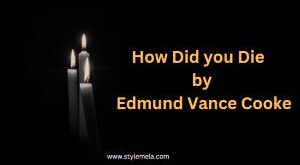Shakespeare Macbeth
“Macbeth” is a tragedy play written by William Shakespeare. It is believed to have been first performed in 1606. The play tells the story of Macbeth, a Scottish general, who receives a prophecy from three witches that he will become the king of Scotland. Consumed by ambition and encouraged by his wife, Lady Macbeth, Macbeth murders King Duncan and takes the throne. However, his guilt and paranoia lead to a series of bloody and tragic events, ultimately leading to his downfall. The play explores themes of ambition, power, guilt, and the consequences of unchecked ambition. “Macbeth” is one of Shakespeare’s most famous and enduring works.
The Tragedy of Macbeth
“The Tragedy of Macbeth” is a play written by William Shakespeare, believed to have been first performed in 1606. The play is set in Scotland and tells the tragic story of Macbeth, a valiant and ambitious general, whose encounter with three witches sets him on a path of murder, betrayal, and ultimate destruction.
Driven by his own ambition and spurred on by the manipulative influence of his wife, Lady Macbeth, Macbeth murders King Duncan to seize the throne. However, his actions lead to a spiral of violence, as he becomes increasingly paranoid and commits further atrocities to maintain his power. The play explores themes of ambition, guilt, fate, and the corrupting influence of unchecked ambition.
As with many of Shakespeare’s works, “The Tragedy of Macbeth” is known for its rich language, complex characters, and exploration of profound human experiences. It remains one of Shakespeare’s most enduring and widely performed plays.
Macbeth Soliloquy
How did Lady Macbeth die?
In William Shakespeare’s play “Macbeth,” Lady Macbeth’s death is not explicitly depicted on stage, and the exact circumstances are not specified. However, it is suggested that she dies offstage and that her death is a result of her own guilt and mental anguish over the crimes committed by herself and her husband. Her death is reported by a gentlewoman and a doctor in Act 5, Scene 5, and it is implied that Lady Macbeth dies by suicide.
why does Macbeth kill Banquo?
Macbeth kills Banquo because he sees him as a threat to his newly acquired throne. The witches’ prophecy predicts that Banquo’s descendants will inherit the throne, which makes Macbeth paranoid and prompts him to eliminate Banquo in an attempt to secure his position.
Whom did Macbeth kill?
Macbeth killed King Duncan, Banquo, and others in his ruthless pursuit of power.
